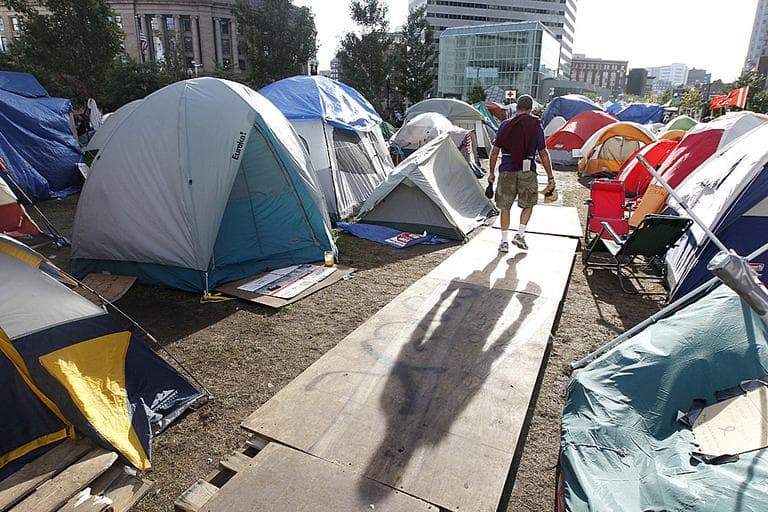Advertisement
Why Occupy Boston Occupies A State Of Legal Limbo
Resume
From Zuccotti Park in the heart of Wall Street to the Rose Kennedy Greenway in Boston, Occupy demonstrators are occupying a state of legal limbo. They're in space that's public, but in a way, it's not. They're public spaces managed or owned by private groups. Those groups reserve the right to evict the Occupy demonstrators at anytime.
The number of such public spaces run by private oversight has grown in recent years, and that comes with significant implications, according to Jerold Kayden, a professor of urban planning and design at Harvard University.
For example, because many private developers build public parks as either a condition of development or for valuable zoning concessions from local municipalities, the spaces they ultimately build are not made with "public use" in mind.
"So as a result, often the spaces are not either wonderfully designed or wonderfully managed for the benefit of the public," Kayden told Radio Boston.
According to Kayden, the Occupy protests highlight the inadequacy of the laws governing public spaces owned by private firms. In most cases, the only two requirements these owners must follow are that their spaces remain open 24 hours a day, and that any other rules they put in place are considered "reasonable."
Such a vague standard almost always benefits a property's owner, Kayden said. And as he wrote in Thursday's New York Times, protests on the Greenway and in Zuccoti Park:
"Should lead to more than a debate about how to regulate public conduct. If privately owned public spaces are to contribute meaningfully to city life, they need a champion, an independent steward or curator who actively promotes their use, not only by assuring that spaces are provided as legally promised but also by encouraging improvements, activities and public educational opportunities."
Guest:
- Jerold Kayden, professor of urban planning and design, Harvard University
More:
- Jerold Kayden: Meet Me At The Plaza
This program aired on October 20, 2011.